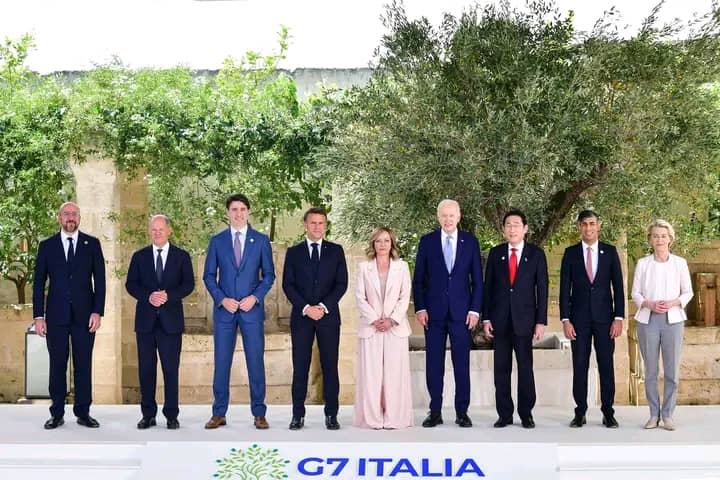This year’s G7 summit, held in Fasano, Italy, reflected the complex dynamics of a group that, despite its vulnerabilities, continues to play a significant role in protecting Western interests. The three-day meeting took place in Borgo Egnazia, a luxurious resort set amidst the picturesque hills of Puglia, from where the leaders of some of the world’s historically wealthiest nations deliberated on pressing global issues.
A Club Under Strain
The G7, composed of Canada, France, Germany, Italy, Japan, the United Kingdom, and the United States, has long been a cornerstone of Western economic and political strategy. However, the authority and influence of this once-dominant assembly have been increasingly questioned. Internally, many of its member states face significant political and economic challenges, which have cast a shadow over their ability to lead on the world stage.
The backdrop of this year’s summit was particularly telling. Each leader arrived in Italy with domestic issues that threatened to undermine their standing both at home and within the G7:
The United States is grappling with political polarization and economic uncertainties.
Germany is dealing with the repercussions of energy transitions and economic stagnation.
France faces social unrest and economic disparity.
The United Kingdom is navigating post-Brexit realities.
Japan confronts demographic challenges and economic stagnation.
Italy is embroiled in political instability.
Canada deals with its own political and economic trials.
Despite these challenges, the G7 managed to project a unified front on several key issues, demonstrating its resilience and continued relevance.
Key Agenda Items
The summit’s agenda was packed with critical topics that underscored the group’s ongoing commitment to tackling global challenges:
Climate Change: Leaders reaffirmed their commitment to the Paris Agreement and discussed strategies to accelerate the transition to renewable energy sources.
Economic Stability: There was a significant focus on stabilizing the global economy amidst rising inflation and the aftershocks of the COVID-19 pandemic.
Geopolitical Tensions: The G7 addressed rising tensions with Russia and China, emphasizing the need for a cohesive approach to counterbalance these powers.
Technological Innovation: Discussions included how to harness technological advancements for economic growth while addressing cybersecurity threats.
The G7’s Resilient Influence
While the G7 may no longer hold the uncontested sway it once did, its influence remains substantial. The ability to convene and deliberate on global matters, setting the agenda for international discourse, is a testament to its enduring importance. This year’s summit highlighted the group’s determination to adapt and respond to both internal and external pressures.
The closing remarks from the summit reflected a cautious optimism. Leaders recognized the necessity of strengthening their domestic fronts to maintain their global influence. They also acknowledged the importance of solidarity and cooperation in an increasingly multipolar world.

